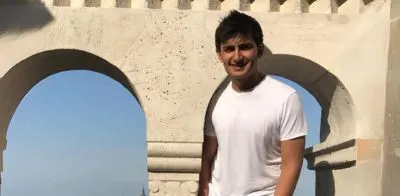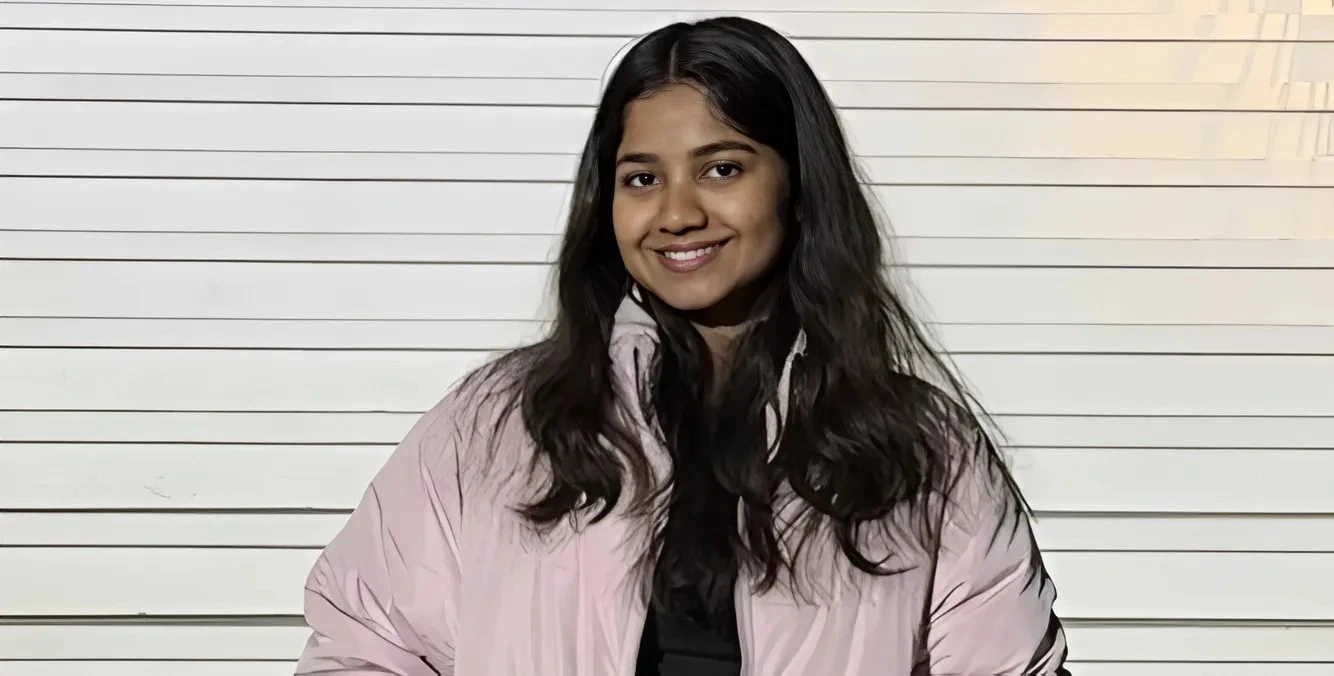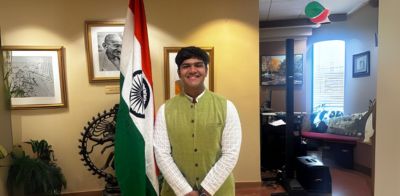Name: Navya Srivastava
University: Sciences Po
Place: Le Havre, Normandy, France
Education: Undergrad student in Politics and Government (minor in Asia)
Key highlights:
- France has a different approach to undergraduate courses that is more practical than theoretical.
- The importance of learning the local language before moving to a foreign country.
- It is imperative to connect with seniors at the University to understand the institute’s academic values, teaching methods, and cultures.
- Engaging in various clubs and extra-curricular activities other than academics.
- Sciences Po gives a unique opportunity to undergraduate students to complete their final year at an international institute.
(February 1, 2024) While the UK, USA, and Australia are some of the most obvious choices of Indian students wishing to pursue higher education in foreign countries, Mumbai girl Navya Srivastava had a different dream. Since she got to know about the University during her high school days, she aspired to study at the prestigious Sciences Po University in France. And so, she was quite elated when she received the acceptance letter from the university for her undergraduate studies in Politics and Government.
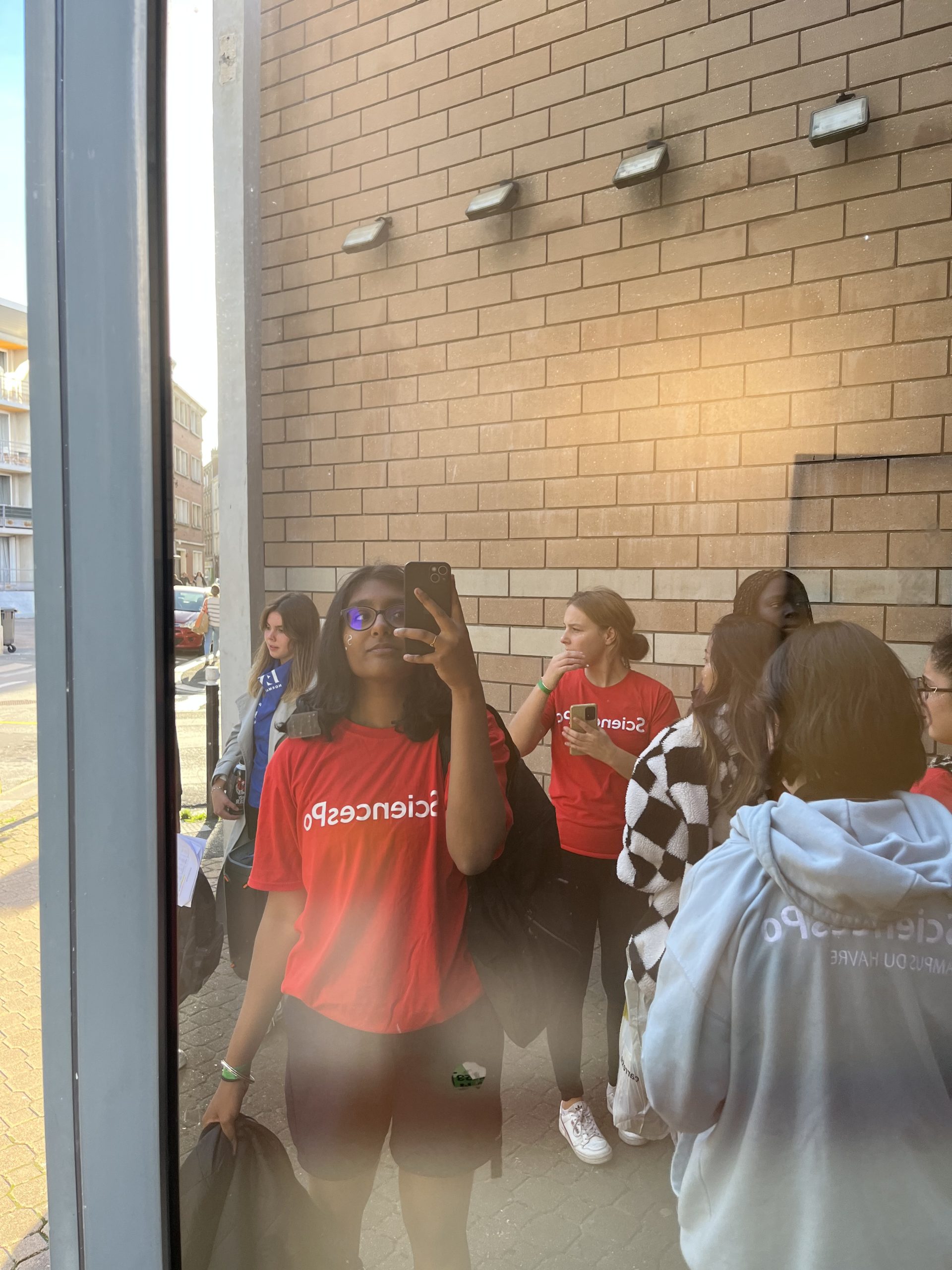
“I had to submit a written essay about my motivation to join the University, apart from meeting the minimum marks requirement for the course. While it is one of the most prominent Universities in the world to study politics and public affairs, what really drew me to join Sciences Po was its long and illustrious alumni list, including names such as Angela Merkel, former Chancellor of Germany, Pierre Lellouche, president of the NATO Parliamentary Assembly; Boutros Boutros-Ghali, former Secretary-General of the United Nations; and Chandrika Kumaratunga, former President of Sri Lanka. That was quite lucrative for me,” shares the teenager, who is a second-year student at the Le Havre campus of the University, situated in the Normandy region of Northern France.
A different approach to education
For many centuries, Sciences Po has held a prestigious status as one of the most coveted universities globally. The institution boasts decentralised campuses located in Dijon, Le Havre, Menton, Nancy, Poitiers, and Reims. Each campus features a distinct academic programme, emphasising a specific geopolitical region.
Ask Navya how is this university different from the others, and she quips, “France, I feel, has a very different approach to the undergraduate course, as compared to the UK or USA. I was looking for this course in the Indian universities as well, but here these courses were mostly about political sciences. However, at Sciences Po we learn much more about the various aspects of foreign policies, international relations, how the international laws bind nations, and so much more. Also, several classes at my university are taken by international scholars – including philosophers, politicians, authors, academics, etc. So, that gives us the first-hand account of how international relations work and how one deals with various situations.”
While she did thorough research on the university before making up her mind, Navya also spoke to the Indian students at Sciences Po. “I asked them about what they learnt, the culture, and the campus life. They informed me all of that, but what actually stood out was the emphasis of the university on public speaking. At Sciences Po, they encourage you to make presentations in class and gain more practical knowledge about any topic rather than just reading or writing about it. So, I have written several research papers – some solo and others with my peers. For one of my classes on feminist legal theory, I was asked to speak to people in my country and discuss their feminist expression. Such exercises are quite an eye-opener,” she shares with Global India.
From Mumbai to Le Havre
Speaking about the entire process from first getting the admission letter to actually landing in Paris, Navya says, “I applied to Sciences Po in their last admission cycle and had very little time between the application acceptance, and joining the University. So, my priority was to get my French student visa sorted, which is a very long and tedious process. I would suggest anybody applying to have all their documents – educational, birth certificate, any other course or internship letters – handy and available when they go for the visa processing.”
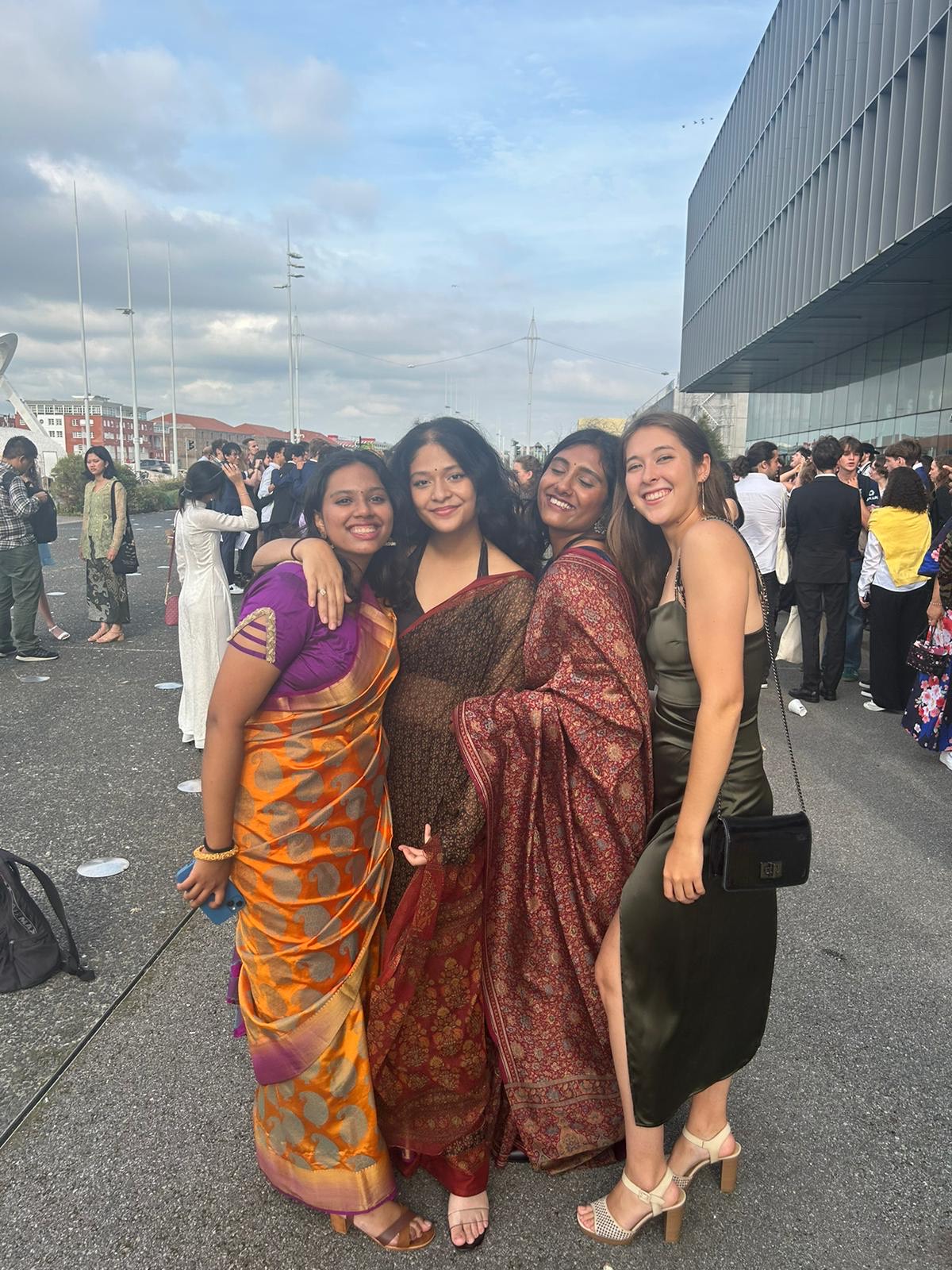
Navya with her coursemates at an event
She adds, “So students get only one year of visa to study in France, irrespective of the duration of their course. Once the student lands in France, they have to apply for a residence permit, which is also valid for one to two years only. But, the thing is they do not issue the residence permit very easily. From what I have observed, the French administration is quite slow, so they generally issue a temporary document – which is what even I have right now. I am hoping to get my residence permit in the next couple of months.”
Cette Vie Française
That ‘French people are extremely proud of their language’ is not a secret. And that was also one of the barriers that Navya faced when she first landed in Paris. “I did enroll in a two-month course to learn French. But there is a difference between learning French in India and conversing in French in France. When I initially came here, I couldn’t speak the language fluently and would speak to locals in English after greeting them in French. That annoys them a lot. Of my experience, I have learned that if you aren’t a confident French speaker, then stick to English,” shares the teenager laughing, “However, I have been in France for one-and-a-half years, and have been learning French at University since my first semester. So, now I speak fluent French.”
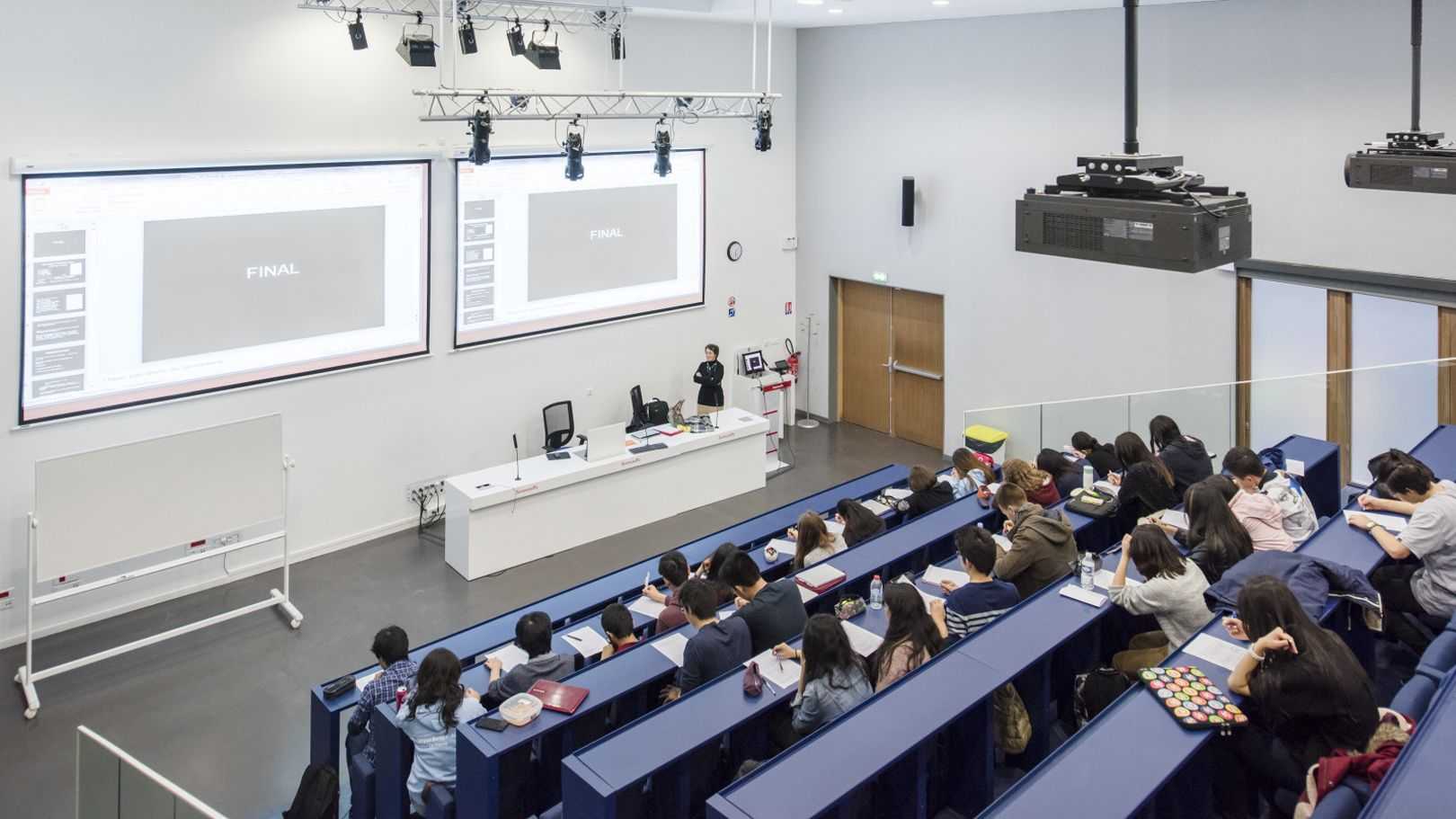
Completely in love with France’s culture, beauty, and people – Navya has also travelled across the nation and several other countries. “I love to travel and have been to several European countries with my friends. While I love to cook in my dorm, I equally love to explore the local cuisine. Also, I reside in northern France, a region with a captivating blend of history, culture, architecture, and nature – making it exceptionally scenic. Normandy is also connected to the Second World War – as the Allied forces landed on the beaches. The bunkers built by the German forces are still there, and so are the bullet pockmarks and shell holes made in them on D-Day by the assaulting American forces. I really enjoyed my trip there. But, there are several places that I am yet to visit,” shares Navya.
Looking ahead
Just coming back from a vacation in India, Navya is looking forward to a very unique third year of her course. “At Sciences Po, undergraduate students get to complete an international exchange during their third year. The purpose of the third year is to complete the multidisciplinary major in another international academic environment at a foreign university. The University has tie-ups with over 450 universities worldwide – including the University of Edinburgh, Harvard University, the National University of Singapore, and even Jawaharlal Nehru University. We get to fill a form giving the faculty our choices along with an essay and statement of purpose, and based on our academic records and aspirations we are assigned an international university to study at,” shares the teenager.
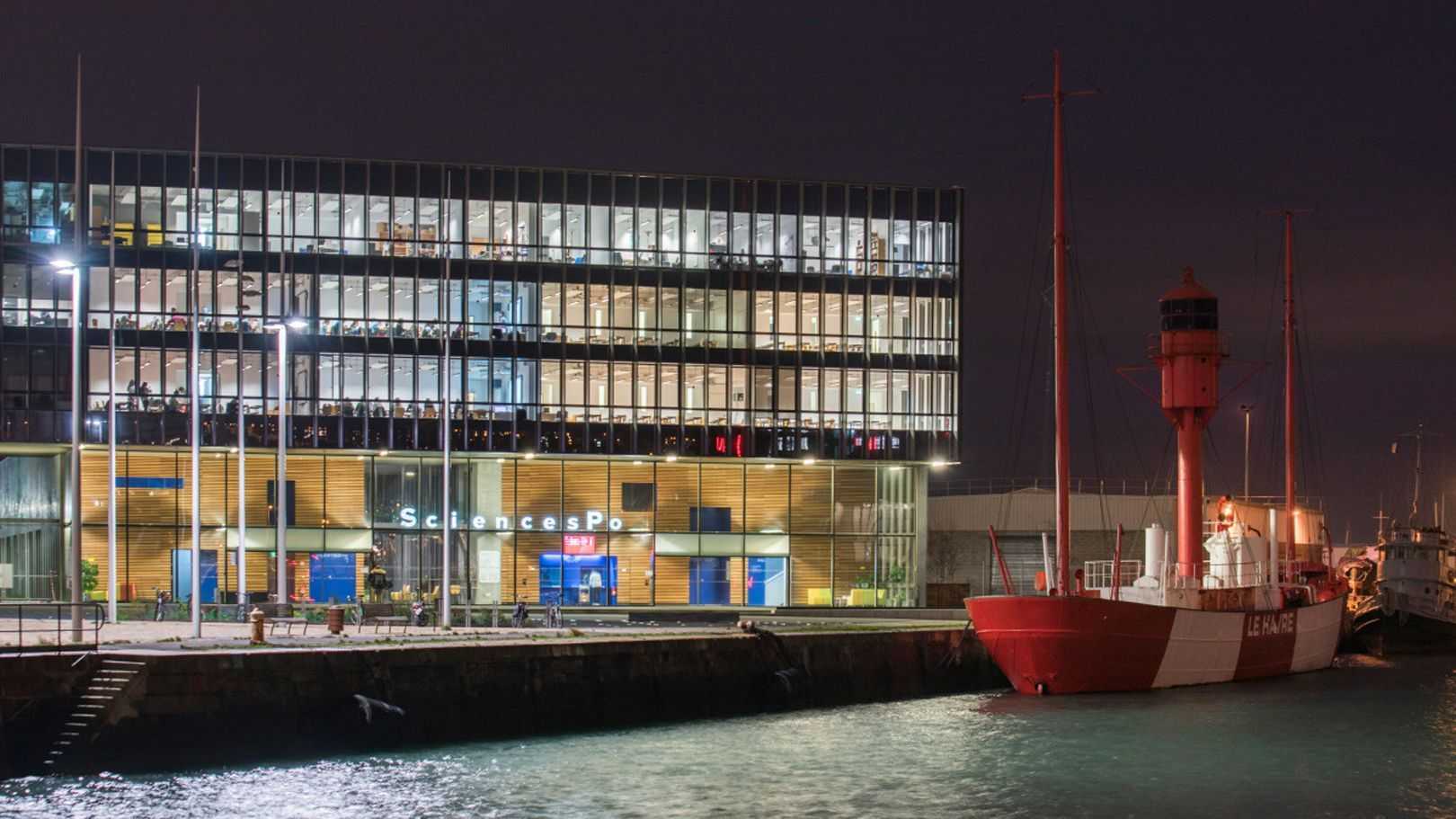
The president of her university’s running club and the captain of the Southeast Asia club, Navya has a pretty packed day at the campus. During her last semester, the teenager also took part in the Philip C. Jessup International Law Moot Court Competition, also known as the Jessup Moot or The Jessup – which is the oldest and largest international moot competition in the world, attracting participants from almost 700 law schools in more than 90 countries. “My team won the French national round, and we even represented our case at the Washington DC. We couldn’t win it, but it was a great experience to network and meet my peers from so many different countries,” she says.
Although Navya does not envision herself pursuing a career in academia, she is exploring various options for her future. “I am considering a masters in Science Po itself, provided I have the required grades,” laughs the teenager, “However, I am also looking at a career in foreign policy – maybe in India or abroad. I am keeping my options open.”


